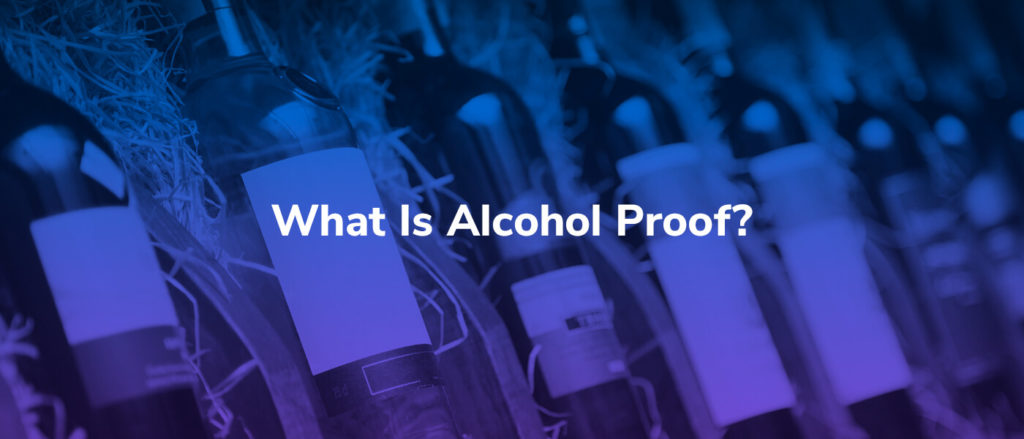After a night of drinking, you may wonder how long that alcohol will stay in your system. Every person’s body processes alcohol differently, with different levels of effects that follow.
Table of Contents:
- How Your Body Processes Alcohol
- How Long Does Being Drunk Last?
- How Long Does Liquor Stay in Your System?
- Can You Sober Yourself Up?
- Why Does Alcohol Dehydrate You?
- Seeking Hangover Relief? We Can Help
Alcohol is primarily broken down in the liver and stomach, with factors like weight, age, gender and amount of food eaten affecting the rate at which the body processes alcohol. And while a hangover can be an uncomfortable experience, there are a few things you can do to help yourself feel better. Keep reading to learn precisely how the body metabolizes alcohol, its effects and how to get fast hangover relief.
How Your Body Processes Alcohol
While alcohol goes through the digestive system, it doesn’t undergo the same extensive digestion process as food. When it enters the gastrointestinal tract, most of it is absorbed directly into the bloodstream through the stomach tissue lining and small intestine. Once in the bloodstream, it is carried throughout the body and travels to the brain.
The process of alcohol absorption is different for others. Some people have stomach enzymes called alcohol dehydrogenase (ADH) that break down alcohol, diverting some of it from entering the bloodstream. Studies show women tend to have lower levels of ADH than men. And those who drink regularly will generally have lower ADH levels than those who rarely or never drink.
For those without enough ADH, the alcohol will hit your bloodstream and brain, and you will start feeling its effects. Then, the liver begins removing most of it from your blood, with the rest coming through your lungs, kidneys and skin.
How Long Does Being Drunk Last?
So, how long do you stay drunk after a few drinks? While the absorption rate tends to be constant among people of the same age, weight and gender, it’s impossible to predict how long you will feel drunk based solely on how much you drank.
Several factors affect how the body metabolizes alcohol:
- Biological sex: Males and females metabolize alcohol differently since their bodies differ in composition. Females tend to have more body fat than males, which can retain alcohol and lead to a higher blood alcohol concentration (BAC) and a longer duration of drunkenness. Further, female bodies contain less water to dilute the alcohol and produce less ADH, ensuring the liver metabolizes the alcohol more slowly.
- Weight: The less a person weighs, the less alcohol they can drink before becoming drunk. Heavier bodies have broader alcohol diffusions across the body. This means they also experience lower levels of drunkenness than those with smaller bodies experience.
- Age: As we age, fat tissue replaces our muscle mass, retaining more alcohol. As a result, when we get older, we stay drunk longer per drink than when we were younger. At the same time, young people do not have fully developed livers, allowing toxins to build up in the body more quickly than in older people. This can often lead to more intense feelings of drunkenness and hangovers in younger people.
- Metabolism: When a person has a high level of liver enzymes, their body metabolizes alcohol faster. When the levels are low, it’s metabolized much slower, resulting in more extended periods of drunkenness.
- Amount and type of alcohol and the speed at which it’s consumed: Generally, the more you drink in a shorter period, the more your body has to process. It’s also helpful to look at the concentration of the drink. Two ounces of spirits will contain much more alcohol than two ounces of wine, for instance.
- Medications: Certain medications can interact with alcohol and adjust the metabolism, affecting the way the body processes alcohol. Some medicines slow it from entering the small intestine and liver, causing the alcohol to absorb rapidly. As a result, you’ll have a higher BAC level and intoxication, affecting the brain faster. Alcohol may interact negatively with cold, flu or allergy medications, antibiotics, anti-anxiety medications, anti-epilepsy medications and more.
- Food: The absorption process might slow when there’s food present in the stomach. Food can absorb alcohol and inhibit it from contacting the stomach lining. This can slow its transition from the stomach into the small intestine, where it metabolizes rapidly.
How Long Does Liquor Stay in Your System?
So, how long does it take to sober up and clear alcohol from your system? The amount of time will differ from person to person. Some higher quality or more sensitive tests can detect smaller amounts of alcohol. And since everyone metabolizes alcohol at their own rate, it will take some longer to clear it from their body than others.
In general, the following is the maximum amount of time tests will detect alcohol after consumption:
- Blood test: 12 hours.
- Breath test: 24 hours.
- Saliva test: 48 hours.
- Urine test: Five days.
- Hair test: 90 days.
Can You Sober Yourself Up?
DIY methods for sobering up are everywhere. But these are myths and won’t actually lower your blood alcohol level. However, they may make you feel or look a little better. These myths include:
- Eating fatty food: Good can change how your body processes alcohol, but not how fast it can do it.
- Drinking coffee: While alcohol is a depressant and makes you drowsy, caffeine is a stimulant that may reverse some of these effects. However, it won’t clear alcohol from your system any faster and combining the two can make you lose track of how much you’ve had to drink.
- Taking a cold shower: While a cold shower might help energize your body after a night of drinking, it won’t help you process the alcohol faster.
Why Does Alcohol Dehydrate You?
Alcohol is a diuretic, meaning heavy drinking can dehydrate you. It causes your body to remove fluids through the kidneys, bladder and ureters much quicker than other liquids. When this happens, you may experience much more uncomfortable hangovers, as dehydration is responsible for specific symptoms like fatigue, headaches and thirst.
The best way to prevent dehydration while drinking is to drink plenty of water before, during and after. And if you need an extra boost, an IV hydration package is a powerful solution. By replenishing your body’s nutrients, an IV can help alleviate many uncomfortable hangover symptoms that occur due to dehydration.
Seeking Hangover Relief? We Can Help
The morning after a few too many drinks can be uncomfortable. Hangovers can last from a few hours to a few days, and most people don’t have enough time to recuperate.
Mobile IV Medics hangover treatment options can help you alleviate many of these symptoms wherever and whenever you need it. Our hangover IV provides quick and efficient relief through hydration and a combination of vitamins and electrolytes. Just give us a call and then sit back and relax. We’ll come straight to you to help you continue with your day.
For hangover relief, book a treatment today.





